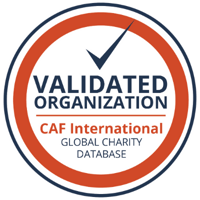Social Impact in Africa: Debunking the Myths
When people speak about social impact in Africa, their sentiments can be laced with extreme optimism or unreserved pessimism. Often these sentiments are brought on by many misconceptions and outdated narratives. Let's explore some common myths and reveal truths about social impact initiatives across the continent.
The Dependency Myth: Aid vs. Empowerment
Many would have you believe that Africa is perpetually dependent on foreign aid, creating a cycle of reliance. The current debates surrounding the USAID spending is a prime example and like the reactions to that, it doesn’t paint a full picture. Focus on the full picture would show that modern social impact initiatives are increasingly focused on empowerment rather than handouts.

The truth is that successful social impact programs in Africa are now being built on partnership models, not dependency. This shift from aid to empowerment is evident in the rising number of African-led non-profits and community-driven impactful initiatives. Organizations in this space are better positioned to understand local contexts, challenges, and opportunities, which makes them more effective at creating sustainable change.
Innovation and Technology: Beyond Basic Solutions
Another myth often associated with social impact in Africa implies that many initiatives within this space focus solely on basic needs –food, shelter, etc, overlooking innovation and technology. While this isn’t incorrect, again it undersells the growing impact of technological revolutions sweeping the entire continent in the last decade.

Technology plays a vital role in how social impact in Africa is pushed. From mobile learning platforms reaching remote areas to mobile banking solutions like Moniepoint revolutionizing financial inclusion and impact. In the same way, innovation is at the forefront of social impact work in Africa with Young African entrepreneurs using cutting-edge technology to solve complex challenges.
Measuring Impact: Numbers vs. Real Change
One of the most damaging myths is the dated misconception that social impact in Africa can't be meaningfully measured. This myth is unsound and leads to scepticism about the effectiveness of social programs. Organizations like The Special Foundation have continued to release Annual Reports that detail their impact numbers, show data for direct and indirect beneficiary impact, etc; measuring real change through documentation.

While one can admit that impact measurement has not always been at its best in Africa its evolution over the last decade or more has been significant. Social Impact organizations in Africa are embracing accountability through monitoring and evaluation frameworks that help ensure continued development and consolidate new learnings. Also, they employ sophisticated metrics that account for long-term outcomes and sustainability models.
The Way Forward
Most myths come from the dated understanding of a situation or an industry. The reality of social impact in Africa is far more nuanced and promising than many common myths associated with the continent suggest. The best way to debunk myths is often to counter them with truth and facts. Fact: across the continent, social impact has continued to thrive in providing value for those who desperately need it.
The future of social impact in Africa lies not in perpetuating dependencies but in fostering partnerships, embracing innovation, and measuring what truly matters. Social impact in Africa is dynamic and evolving. By debunking these myths and understanding and sharing these truths, we can better support and engage with initiatives that create lasting, meaningful change across the continent.
Remember:
Every child deserves an education, every child has a right to dream.


















